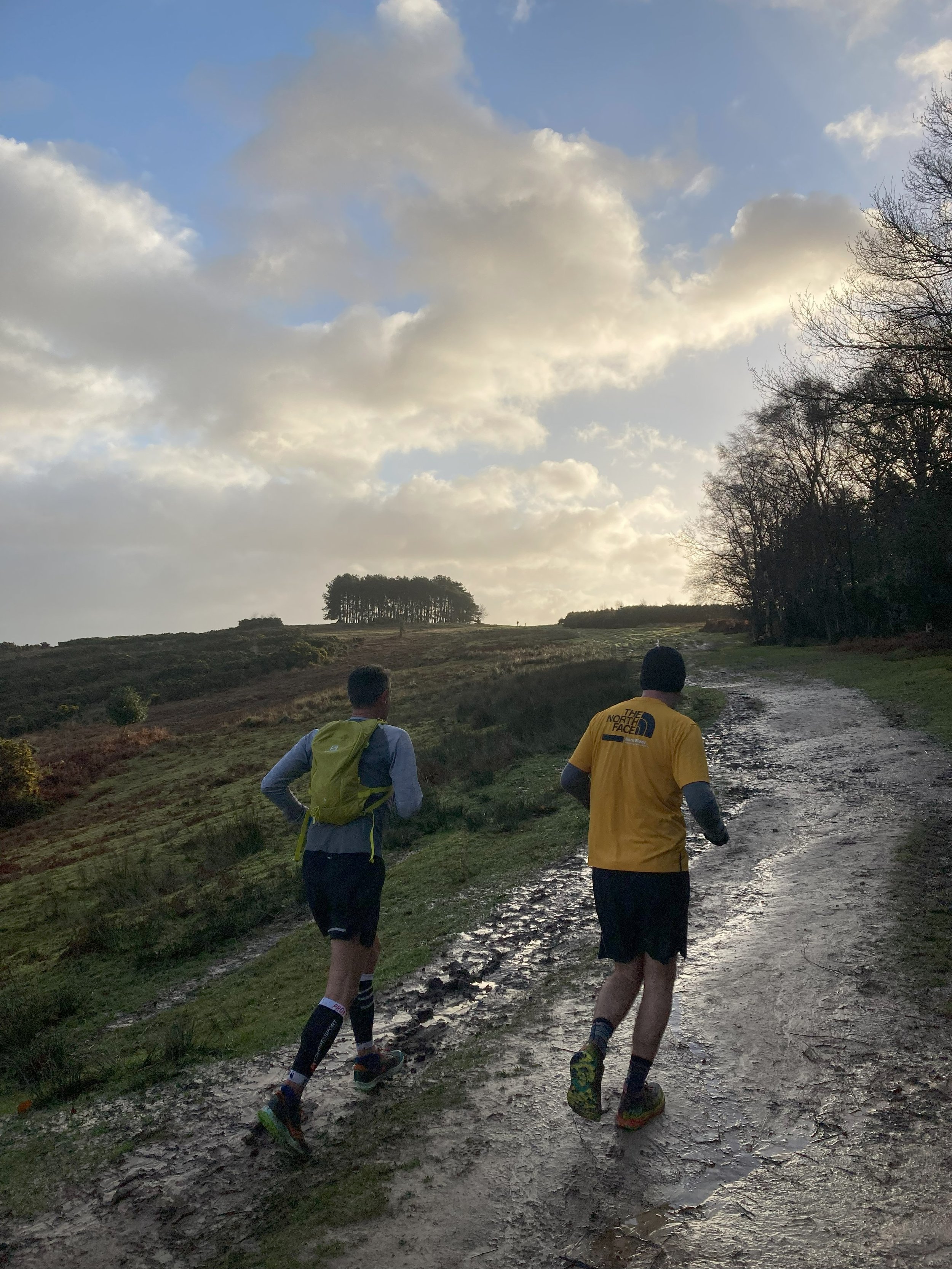Ultra marathon training tips for beginners
I was skeptical at first about joining a running group, I loved the solitude of running however when I first started running seriously on trails I was keen to know about kit, especially shoes and jackets. As well as forming lasting friendships I was able to talk with other runners about training approaches. Joining a Club is a great way to start your ultra running journey. The others in the group will share their experiences, join you on training or introduce to others with similar aspirations.
Ashdown Forest
The mind
The mind is more important than the body when it comes to endurance running. You need to condition your body but your mind get you over the line. I always set out to enjoy my training and trails are ideal for this. I find running on pavements a slog so if you live near countryside, head for the trails are in a city include park running.
Run Slow
Take your time and take it all in, listen to the birds soak up the atmosphere and importantly go slow. Whether I am running 10km or 20km I tend to run at the same pace. I concentrate on going slow and strong, often known as Zone 2 running. This is a pace where you can easily keep a conversation for long periods of time and you are not out of breath. This builds endurance and helps avoid injury, something I am a huge advocat of. Training for an ultra is daunting for the first time but you need to take your time.
Consistency
Run consistently and you will see huge benefits. Training around a busy life is difficult so smaller and more consistent training sessions can be beneficial. A mistake I made early on was running two or three short runs during the week and a large run at the weekend. My body did not like it and I was picking up injuries. It lead me to developing my own 10 km x 10km x 10km approach.
10 x 10 x10
I was inspired by an approach known as the ‘9 mile marathon’ whereby you never run more than a 9 mile run in a build up to a marathon. Rather than doing a long run on a Sunday, a 30km for example, if I am training for a 50km race I will run 10k back to back on a Friday, Saturday and Sunday. I have seen huge benefits from this approach as you run on tired legs on days two and three, reduce injury potential and still cover your needed distance. Often my best and most enjoyable run is on day 3! More on this in other blogs.
Include hills and trails
I always include elevation and trails. Elevation is key to ultra running (races are almost exclusively in the countryside) and trails build up all the little muscles in the feet and ankles with uneven surfaces. You also need to concentrate harder and be in the moment on the trails which has great benefits for the mind!
Build up week
In the weeks building up to an ultra marathon, I will be running the distance of the race during the week. If it is a 50km race for example the aggregate distance of that week will be 50km. No more. Simple. A good way would be 50 x 10km run, running for an hour each time (slow and strong) first thing in the morning.
Form
I concentrate on keeping everything in a straight line, mid foot strike, high cadence (try and run as quietly as possible, it will increase your cadence) and use my glutes to power.
Strength and Conditioning (S&C)
Strong glutes are the key in my view to injury prevention. As soon as I concentrated on this area I saw a reduction in injury. A good way to incorporate S&C into your routine is to warm down with exercises such as one legged deadlifts.
Sleep
Get a good night’s sleep!
It’s ok to walk
Finally, it is ok to walk. Ultra running events are more focused on finishing than time. People will often walk the inclines to catch their breath and if you are keeping the legs moving you are still benefitting.
